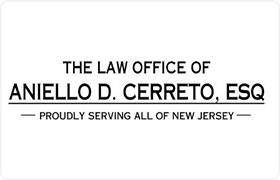Pluckemin Divorce & Family Law Lawyer, New Jersey
Sponsored Law Firm
-
 x
x

Click For More Info:
-
The Law Office of Aniello D. Cerreto, Esq.
215 Gordon's Corner Road Suite 1 Manalapan, NJ 07726» view mapDivorce & Family Law A Lawyer Who Listens To You
When you need an attorney, you need an advocate who takes the time to understand your case.
800-809-4531
Lynette Siragusa
✓ VERIFIEDDivorce & Family Law, Family Law, Guardianships & Conservatorships, Adoption, Domestic Violence & Neglect
Lynette Siragusa is licensed to practice law in New Jersey and Massachusetts. Ms. Siragusa received her undergraduate degree from Northeastern Univers... (more)
FREE CONSULTATION
CONTACTVeronica R. Norgaard
Family Law, Child Support, Child Custody, Divorce & Family Law
Status: In Good Standing Licensed: 20 Years
FREE CONSULTATION
CONTACTSusan J Radom
Real Estate, Divorce & Family Law, Business, Accident & Injury
Status: In Good Standing Licensed: 36 Years
Gary A. Blaustein
Child Support, Adoption, Corporate, Collection
Status: In Good Standing Licensed: 40 Years
Gregory A Pasler
Family Law, Child Support, Child Custody, Divorce & Family Law
Status: In Good Standing
Nicole Cioffi
Family Law, Child Support, Child Custody, Divorce & Family Law
Status: In Good Standing
Adelaide Riggi
Adoption, Property & Casualty, Child Support, Divorce, Child Custody
Status: In Good Standing
 Aniello Cerreto Manalapan, NJ
Aniello Cerreto Manalapan, NJ AboutThe Law Office of Aniello D. Cerreto, Esq.
AboutThe Law Office of Aniello D. Cerreto, Esq. Practice AreasExpertise
Practice AreasExpertise

